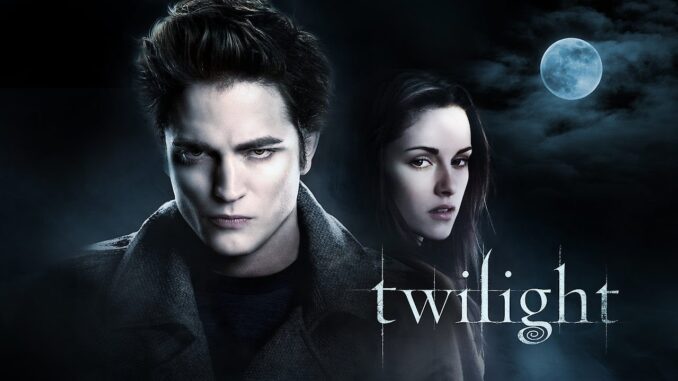
The Unfading Glow: What Makes The Twilight Saga Still Loved By Fans After More Than 15 Years?
To merely label The Twilight Saga as a “guilty pleasure” or a fleeting pop culture phenomenon feels like an injustice to the enduring warmth it generates in the hearts of millions. More than 15 years after its initial publication and over a decade since its cinematic zenith, the misty, perpetually overcast world of Forks, Washington, and its extraordinary inhabitants continue to cast a potent spell. Despite critical derision and the passage of time, Twilight remains not just a remembered relic, but a cherished touchstone, still sparking debates, re-reads, and fervent adoration. Its unfading glow stems from a potent alchemy of pure, unadulterated escapism, the intoxicating pull of an all-consuming romance, the surprising relatability of its ordinary protagonist, and the fierce, vibrant community it ignited.
At its core, Twilight offered a tantalizing portal to a world humming with unseen power, a world just beneath the veneer of the mundane. For a generation navigating the often-uninspired landscape of adolescence, the promise of glittering vampires, shapeshifting werewolves, and a love that defied human understanding was an irresistible siren song. Forks, with its endless rain and ancient forests, became a character in itself – a mystical backdrop where the extraordinary wasn’t just possible, but an everyday reality. This wasn’t merely fantasy; it was immersive fantasy, where the scent of pine needles, the chilling cold of a vampire’s skin, and the primal growl of a wolf felt almost tangible. Readers were invited to shed the weight of their own humdrum lives and plunge headfirst into a dangerous, beautiful ballet of the supernatural, where every shadow held a secret and every heartbeat promised adventure.
But beyond the glittering spectacle, the undeniable heartbeat of The Twilight Saga lay in its central, often polarizing, romance. The magnetic pull between the awkward, ordinary Bella Swan and the impossibly beautiful, tormented vampire Edward Cullen was a narrative force field that captivated millions. It was a love story of heightened stakes – forbidden, dangerous, eternal. Critics might dissect its perceived toxicity or melodrama, but for its devoted fans, it represented an ideal: an epic, unwavering devotion that transcended death, logic, and species. Bella’s journey from a self-conscious outsider to the epicenter of an immortal love triangle resonated deeply. It tapped into the universal yearning for a love so powerful it transforms, a love that sees beyond flaws, and a love that is, quite simply, meant to be. This wasn’t just a boy-meets-girl story; it was a fairy tale for a modern age, wrapped in a gothic sensibility that made it feel both timeless and thrillingly new.
Crucially, Bella Swan, despite her extraordinary circumstances, served as a surprisingly effective vessel for reader identification. She was not the quintessential “chosen one” or a flawless heroine; she was clumsy, introspective, sometimes stubborn, and often felt out of place. This made her an everygirl, a quiet mirror onto which millions projected their own longing for connection, for purpose, and for a love that would make them feel seen. Her transformation, not just into a vampire but into a confident woman who found her voice and her strength, provided a powerful arc. Readers weren’t just observing her journey; they were embarking on it with her, experiencing the dizzying highs and devastating lows as if they were their own. The emotional investment in Bella’s choices, her friendships, and her heart, was profound and personal.
Finally, and perhaps most enduringly, The Twilight Saga fostered a vibrant, passionate, and fiercely loyal community. Long before the term “fandom” became ubiquitous, Twilight cultivated a global sisterhood (and brotherhood) of enthusiasts. “Team Edward” versus “Team Jacob” wasn’t just a playful debate; it was a rallying cry, a way to declare allegiance and connect with like-minded individuals. Online forums, fanfiction archives, cosplay conventions, and midnight movie premieres became pulsating, vibrant ecosystems where shared passion flourished. This collective experience, the joy of discovering the books together, dissecting every chapter, anticipating every movie, and finding kinship in shared obsession, forged bonds that transcend the stories themselves. For many, Twilight wasn’t just a series of books or films; it was a cultural touchstone that defined a part of their youth, and nostalgia, a gentle, persistent tide, continues to pull them back.
After more than 15 years, The Twilight Saga endures not because it is perfect, but because it is powerful. It gifted us with a fantastical escape, a love story that dared to be grand and unapologetically emotional, a relatable heroine who experienced the extraordinary, and a community that celebrated every sparkling, fanged moment. Its enduring love is a testament to its capacity to stir deep emotions, to fulfill a yearning for magic in the mundane, and to remind us that even in the darkest, rainiest corners of the world, epic love stories are waiting to unfold. The glow, it seems, is far from fading.
